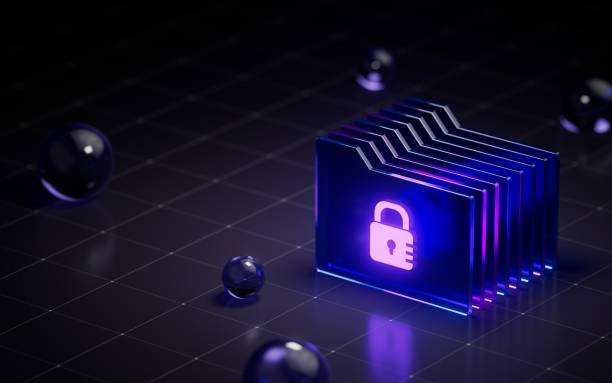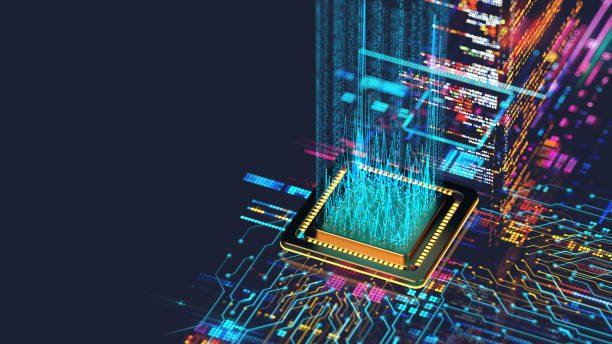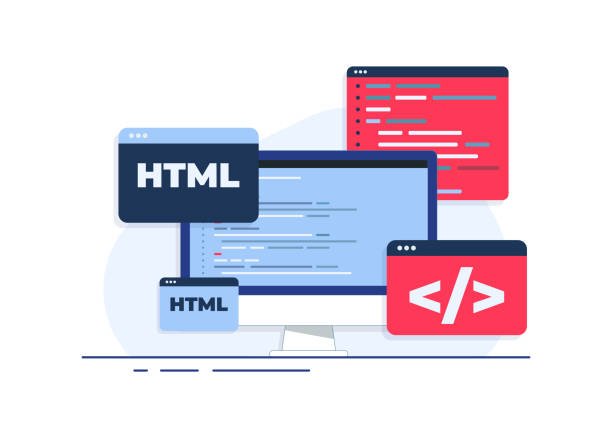In the modern world, the frontlines of battle are no longer only drawn in mud-soaked trenches or sprawling deserts. They flicker across cables, pulse through Wi-Fi signals, and hide in strings of cryptic code. In this new age, the soldiers wear hoodies as often as uniforms, and the weapons are lines of Python rather than steel and lead. The battlefield is cyberspace, and it’s everywhere.
Cybersecurity is the silent war of our time, unfolding behind glowing screens in every nation on earth. It is a war fought not only by governments and tech giants but by dedicated men and women—digital guardians who patrol the virtual walls of companies, hospitals, banks, and even personal devices. In the shadows, they defend secrets, protect identities, and keep the machinery of modern civilization running.
The stakes are colossal. Hackers infiltrate systems to steal money, secrets, and power. Ransomware can shut down hospitals, disrupt supply chains, even paralyze entire cities. Election interference, espionage, sabotage—the consequences ripple far beyond the screen. In this invisible domain, cybersecurity professionals are the last line of defense.
But who are these digital guardians? And how does one become one of them?
A Call to Defend the Digital Realm
To many, cybersecurity sounds like a secretive club, populated by hoodie-clad geniuses hammering out code in dark rooms. The truth is broader, more human, and deeply compelling. Cybersecurity is a profession born of curiosity, a love for problem-solving, and a fierce drive to protect.
The journey often starts with a single spark. For some, it’s the thrill of breaking into a system—ethically, of course—to prove they can. For others, it’s the horror of watching someone’s identity stolen or a hospital held hostage by ransomware. Whatever the catalyst, the urge to defend the vulnerable, to outwit those who would harm others, drives countless people into this profession.
Unlike many traditional careers, cybersecurity is not defined by a single pathway. It’s a realm where high school dropouts sit side by side with PhDs, where hackers turned protectors join forces with lifelong engineers. What unites them is the willingness to adapt, to learn endlessly, and to fight for a world increasingly dependent on the fragile scaffolding of digital systems.
The Many Faces of Cybersecurity
Cybersecurity is not a monolith. It’s a vast ecosystem of roles, each critical to the health of the digital world. Some are hunters, tracking down threats lurking unseen in network traffic. Others are builders, crafting tools and systems that resist attack. Still others are teachers and evangelists, training users to spot the baited hooks of phishing emails.
Consider the penetration tester—the ethical hacker. This role brims with adrenaline. Pen testers break into systems, not to steal, but to expose weaknesses before the real villains find them. They think like criminals, anticipate moves, and deploy ingenious methods to slip past defenses. Their work is a cat-and-mouse game of intellectual daring.
Then there are incident responders—the digital firefighters. When alarms blare, these professionals charge in, isolating threats, preserving evidence, restoring systems. The hours can be brutal. Sleepless nights, frantic calls, and the weight of knowing a single misstep might cost millions. Yet many thrive on the urgency, the sense of mission.
Security architects are the planners. They design the fortresses: the firewalls, encryption protocols, network segmentation schemes that form the skeleton of defense. Their vision is strategic, balancing security with usability, cost, and business needs.
Cybersecurity analysts are the watchers. They sift through logs, monitor dashboards, and follow breadcrumbs to detect intrusions. Their days revolve around curiosity and vigilance, piecing together subtle clues that might signal an unfolding attack.
And beyond the technical roles lie crucial non-technical positions: governance, risk management, compliance, policy development, cybersecurity law. The digital guardian’s realm is not only lines of code—it’s laws, ethics, human behavior.
The Lure of the Digital Trenches
Cybersecurity is more than a career. For many, it’s a calling. There’s a unique satisfaction in stopping an attack, in knowing that millions of people sleep easier because of work done behind the scenes. Cybersecurity professionals often describe a rush of adrenaline when discovering a vulnerability or catching a sophisticated threat in the act.
But it’s not merely the thrill that draws people. It’s the moral dimension. Cybersecurity is about protecting people who often don’t even realize they’re under threat. It’s a line of work where the consequences are starkly real. A successful attack might compromise hospital systems, delaying critical surgeries. It might empty bank accounts, shut down cities, or destabilize democracies.
Many cybersecurity pros see themselves as modern knights. The battle is unseen, but the sense of duty burns just as fiercely as in any physical battlefield. It’s this blend of intellectual challenge and moral purpose that makes the profession so addictive.
A Constantly Evolving Landscape
Few fields change as fast as cybersecurity. The tools, threats, and technologies of yesterday are obsolete by tomorrow. This rapid change can be exhilarating—and exhausting. Cyber defenders live in a perpetual arms race. As security advances, so too do attackers’ techniques.
New technologies open new vulnerabilities. The rise of cloud computing, the Internet of Things, artificial intelligence, and 5G networks has exploded the attack surface. Suddenly, everything from baby monitors to industrial machinery can become a hacker’s point of entry.
Yet the core truth remains unchanged: humans are often the weakest link. The most sophisticated system in the world can crumble under the weight of a single careless click. Social engineering—tricking people rather than hacking machines—remains a devastatingly effective tactic. Cybersecurity professionals know that protecting systems means understanding not just technology, but human psychology.
Forging the Path: Education and Entry Points
So how does one join the ranks of these modern guardians? The journey can begin from countless places.
For some, the pathway starts in academia. Degrees in computer science, information security, or digital forensics offer solid technical grounding. Universities increasingly offer specialized programs in cybersecurity, some with hands-on labs where students battle simulated threats.
Yet formal education is not mandatory. Many brilliant cybersecurity experts come from unconventional backgrounds. Some were hobbyist hackers who taught themselves code. Others were gamers drawn in by the logic and challenge. Some arrived from entirely different fields—journalism, psychology, even art—discovering that their skills translated surprisingly well.
Certifications are a common waypoint. They serve as passports into the field, signaling commitment and knowledge. The CompTIA Security+ is a frequent starting point, providing broad familiarity with security concepts. From there, professionals might pursue more advanced credentials like CISSP, CEH, OSCP, and others, each carving out a niche in the cybersecurity landscape.
But no piece of paper, no matter how official, can replace curiosity and passion. Cybersecurity demands lifelong learning. New vulnerabilities, new exploits, new tools emerge daily. The most successful defenders are those who relish the chase, who stay up late tinkering with new scripts, who follow threat intelligence like others follow sports scores.
Learning to Think Like a Hacker
One of the defining characteristics of cybersecurity is the need to adopt a dual mindset: defender and attacker. To protect systems effectively, professionals must think like those seeking to breach them. This means learning not just how defenses work, but how they fail.
Ethical hacking courses and “capture the flag” competitions offer powerful training grounds. In these controlled environments, participants probe systems, exploit weaknesses, and race to solve challenges. The adrenaline is real. So is the camaraderie. These experiences cultivate the hacker’s mindset: relentless curiosity, lateral thinking, and creative problem-solving.
Yet ethical hacking is not about chaos. It’s about understanding limits. A digital guardian must wield immense power responsibly. Laws vary around the world, and even well-intentioned hacking can result in serious legal consequences if conducted without authorization.
This moral compass is the beating heart of cybersecurity. Professionals protect systems, but they also protect privacy, liberty, and trust.
The Art and Science of Cyber Defense
Cybersecurity straddles art and science. The science lies in protocols, encryption, and rigorous methodologies. The art emerges in intuition—the “spidey sense” that tells a seasoned analyst that something is amiss, even when logs appear normal.
Seasoned professionals often describe this sixth sense. They can scan a packet capture and feel that something doesn’t fit, even if they can’t immediately articulate why. This instinct comes only with time and exposure. It’s not magic—it’s pattern recognition honed over thousands of hours.
Another artistic dimension arises in social engineering defense. Cybersecurity experts must craft training, simulations, and communication that truly connect with human users. Dry technical lectures won’t prevent someone from clicking a link promising a free iPhone. Creativity, storytelling, and empathy become essential tools.
Rising Demand and Global Opportunity
Cybersecurity is not just a noble calling—it’s one of the fastest-growing, most secure career paths in the modern world. The global shortage of qualified professionals is staggering. Estimates suggest millions of unfilled cybersecurity jobs worldwide.
Every industry needs protection. Finance, healthcare, government, energy, retail, manufacturing—all are under siege. And the pandemic-driven shift to remote work has only heightened vulnerabilities.
This demand means strong salaries, even at entry level. Cybersecurity offers the rare combination of intellectual stimulation, moral purpose, and financial stability. But it also comes with pressure, long hours, and the relentless pace of change.
Women and Diversity in Cybersecurity
Historically, cybersecurity has been male-dominated. Yet women and people from diverse backgrounds are increasingly entering the field, enriching it with fresh perspectives.
Women like Parisa Tabriz, Google’s “Security Princess,” or Katie Moussouris, a pioneer in vulnerability disclosure, have become icons. Organizations like Women in CyberSecurity (WiCyS) and Black Girls Hack work tirelessly to create pathways and mentorship for underrepresented groups.
Diversity is not merely a moral imperative—it’s a practical necessity. Cyber adversaries are global, diverse, and creative. Defending against them demands a variety of perspectives, experiences, and ways of thinking.
The Toll and Triumph of the Digital Guard
Yet the profession is not without cost. Cybersecurity professionals often face intense stress. They live under the constant threat of catastrophic breaches. Sleepless nights are common. The psychological toll can be heavy, knowing that a single missed alert could trigger disaster.
Burnout is real. Many organizations now recognize the importance of mental health support, reasonable on-call rotations, and fostering work-life balance. The world depends on these guardians—and it’s crucial they remain healthy enough to continue the fight.
But for those who thrive, the rewards go far beyond paychecks. Few careers offer the visceral sense of purpose found in cybersecurity. Every day is a new puzzle. Every solved breach is a life protected, a business saved, a secret kept safe.
The Cybersecurity Community: A Brotherhood and Sisterhood of Defenders
One of the lesser-known joys of cybersecurity is the community itself. Conventions like DEF CON in Las Vegas or Black Hat draw thousands of professionals who share war stories, swap knowledge, and celebrate their craft. There’s a rebellious spirit in these gatherings—a collective determination to make the internet safer for everyone.
Online communities flourish as well. Professionals trade insights on forums, Discord channels, and Twitter. The field is collaborative by nature. In the face of ever-evolving threats, no one can go it alone.
It’s a place where beginners can ask questions and veterans offer guidance. It’s a realm that rewards those who share rather than hoard knowledge.
Future Frontiers of Cybersecurity
Cybersecurity stands on the edge of unprecedented challenges. Artificial intelligence will become both a weapon and a shield. Quantum computing threatens to crack encryption once thought unbreakable. Bio-digital interfaces, autonomous vehicles, and smart cities will create new vulnerabilities we can scarcely imagine.
Yet human ingenuity has always risen to meet the challenge. Cybersecurity will evolve, becoming even more intertwined with every aspect of life. The digital guardians of tomorrow will need to be not only technologists, but philosophers, ethicists, and diplomats.
The question is no longer whether cybersecurity is essential—it’s how we will shape it to protect freedom, privacy, and the fabric of society itself.
A Personal Journey Into the Digital Arena
Perhaps you feel the pull of this world. Maybe you’ve stared at your computer late at night, wondering how systems work beneath the surface. Maybe you’ve felt outrage reading headlines about stolen medical data or crippled cities. Maybe you want to make a difference.
Know this: the path into cybersecurity is open. Whether you’re young or changing careers midlife, whether you love coding or prefer writing policies, there’s a place for you.
The journey will demand perseverance. You’ll face moments of frustration, of feeling outmatched by machines and adversaries alike. But you’ll also feel exhilaration when you solve a mystery, close a vulnerability, or thwart a would-be attacker.
You’ll join a brotherhood and sisterhood of guardians. You’ll carry secrets others can’t imagine. And you’ll know, deep down, that you’re helping hold back the tide of chaos in the digital age.
Becoming a Digital Guardian
To become a digital guardian is to step into the endless fight between creation and destruction, trust and deception, freedom and control. It’s a path that winds through logic, ethics, human behavior, and relentless technological change.
It’s a path not for the faint of heart—but for those who walk it, the rewards are unmatched.
Somewhere, right now, an attack is unfolding. Someone is launching a phishing email, probing a network, planting ransomware. And somewhere else, a digital guardian is watching, listening, preparing to strike back.
The world needs these guardians more than ever. The question is: will you be one of them?






